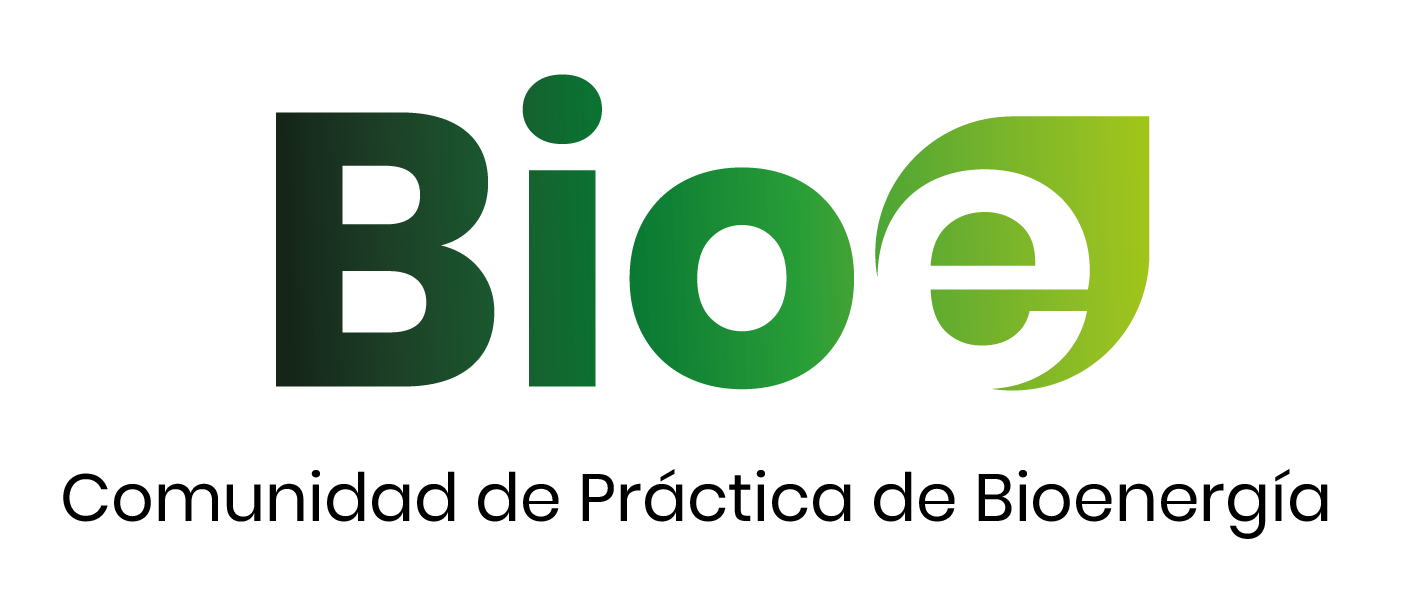

In collaboration with:








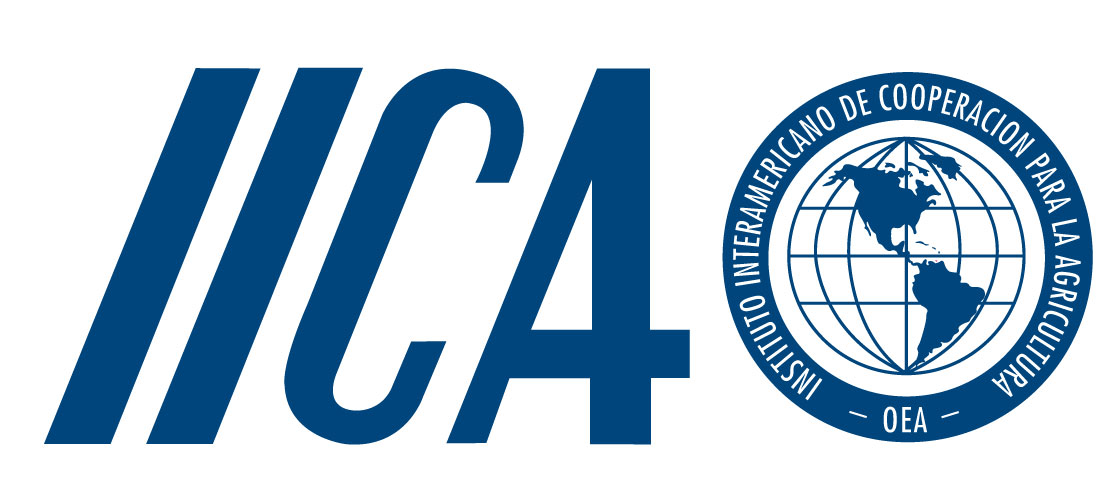
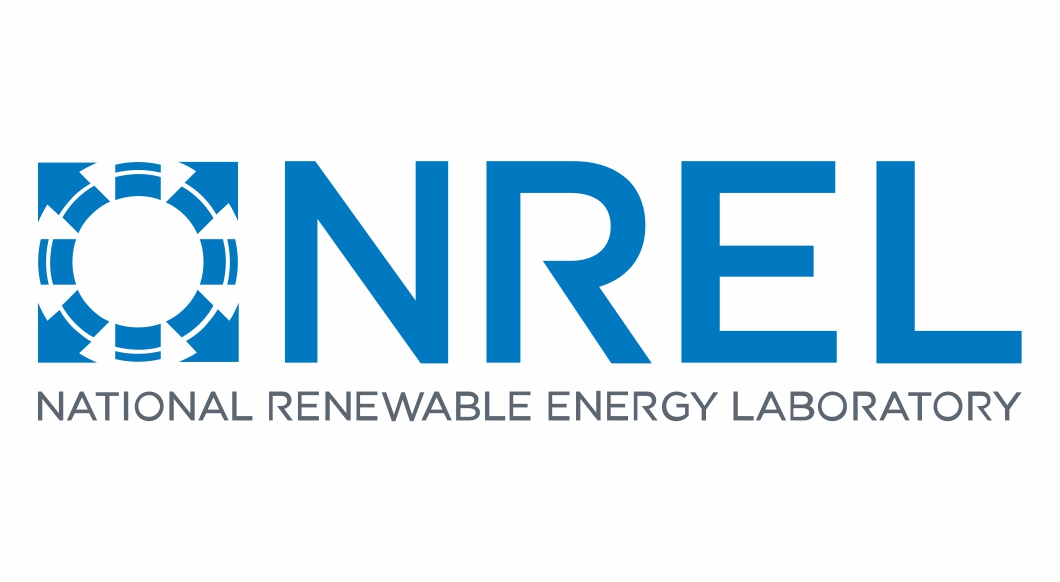
The Bioenergy Challenge Latin America and the Caribbean 2023 (BioE LAC 2023 Challenge) seeks to identify 20 promoter teams of specific investment projects for sustainable bioenergy development in its different forms, to participate in a six-week capacity building process, which will include online training sessions and advice to strengthen their business plans and financing proposals.
Among these 20 teams, 5 will be selected as finalists, who will have the opportunity to present their projects before a panel of experts, receive feedback to continue strengthening their proposals and establish contacts with potential sources of technical assistance and funding.

Individuals or organizations interested in being part of the challenge should fill out the online form provided at this link no later than Sunday, July 30.
The following conditions apply:
Applications will be reviewed by a committee comprised of experts from partner organizations and selected members of the Bioenergy Community of Practice. Applications will be evaluated taking into account:
A team of a maximum of three people from each of the selected projects will participate in a six-week capacity building process.between August 14 and September 23, to develop/strengthen their business plans and project proposals.
Based on the information provided by the applicants, the selected projects will be classified into two categories:
At the end of the strengthening process, the team will have:
The Challenge coordination will provide formats for NP and NIP.
1. Online training sessions (August 14 - September 9)
A series of synchronous virtual sessions on topics that will help them improve their business plans and project notes (NP) or project idea notes (NIP). Session topics will include:
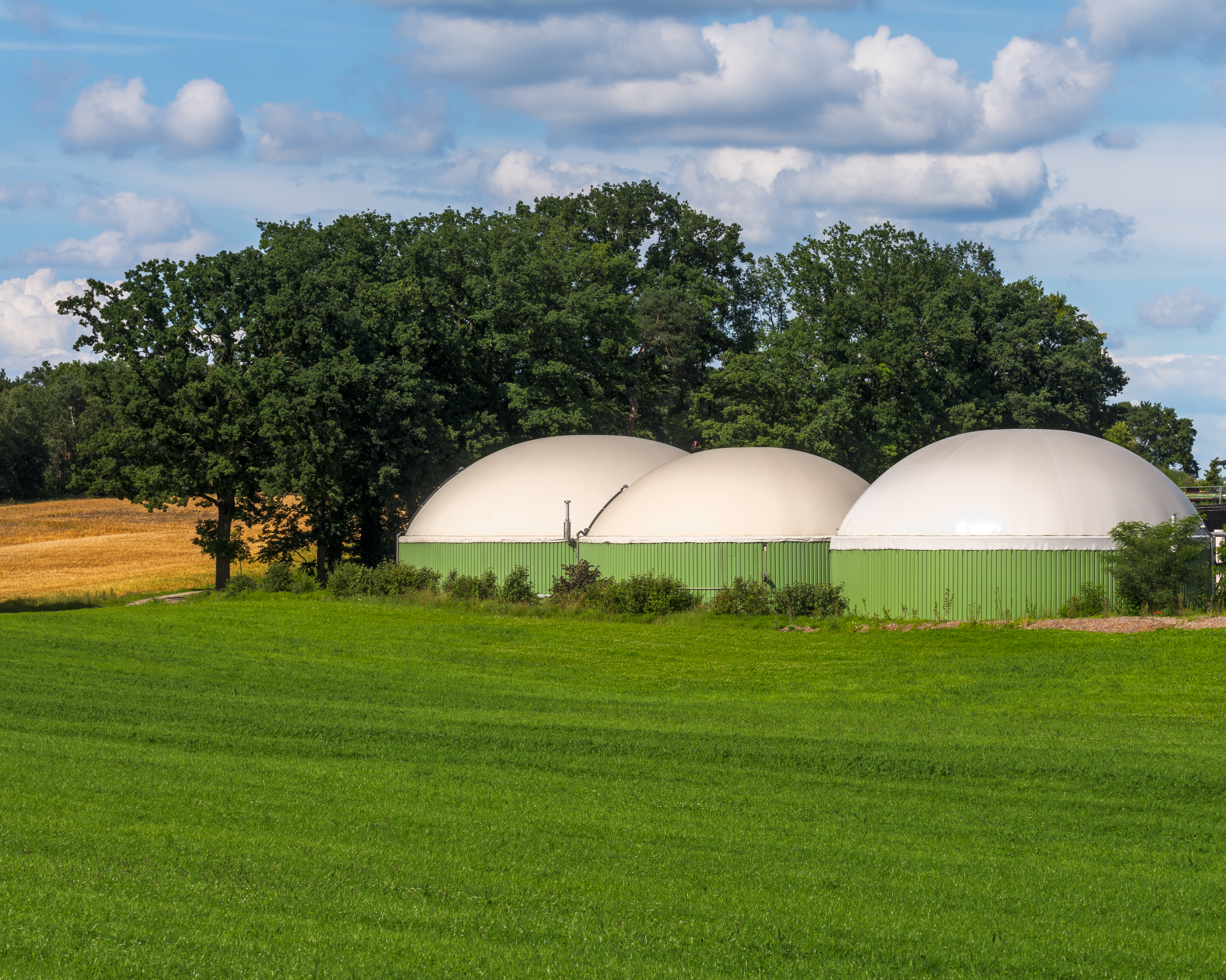

2. Access to coaching (August 28 to September 23)
During the six-week period, project proponents will have the right to a maximum of 2 hours per weeks advisory services to answer specific questions and provide guidance in the preparation of your NP/NIP.
3. Estimation of the potential for GHG emission reductions and access to climate finance, to be performed by South Pole for each project.
This estimate will be included in a 4-5 page document that will be delivered to the proponent team of each project, as an input to strengthen their proposals and guide the search for funding depending on the information available for the evaluation.
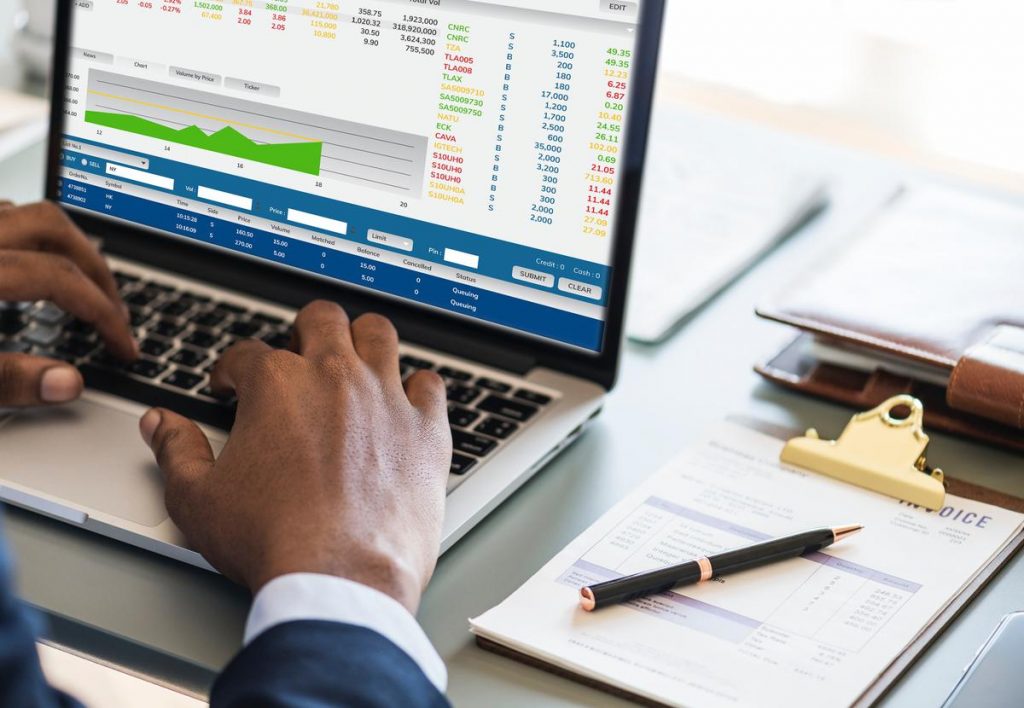
As a product of this process, each participating team must submit an NP or NIP no later than September 26.
A selection committee made up of experts from financial institutions, Challenge partner organizations and selected members of the BioE CoP will evaluate the quality of the NP or NIP, using a standard form provided by the organizers. All teams will receive feedback based on the Committee's comments and a maximum of five projects will be selected to participate in the final phase of the Challenge.
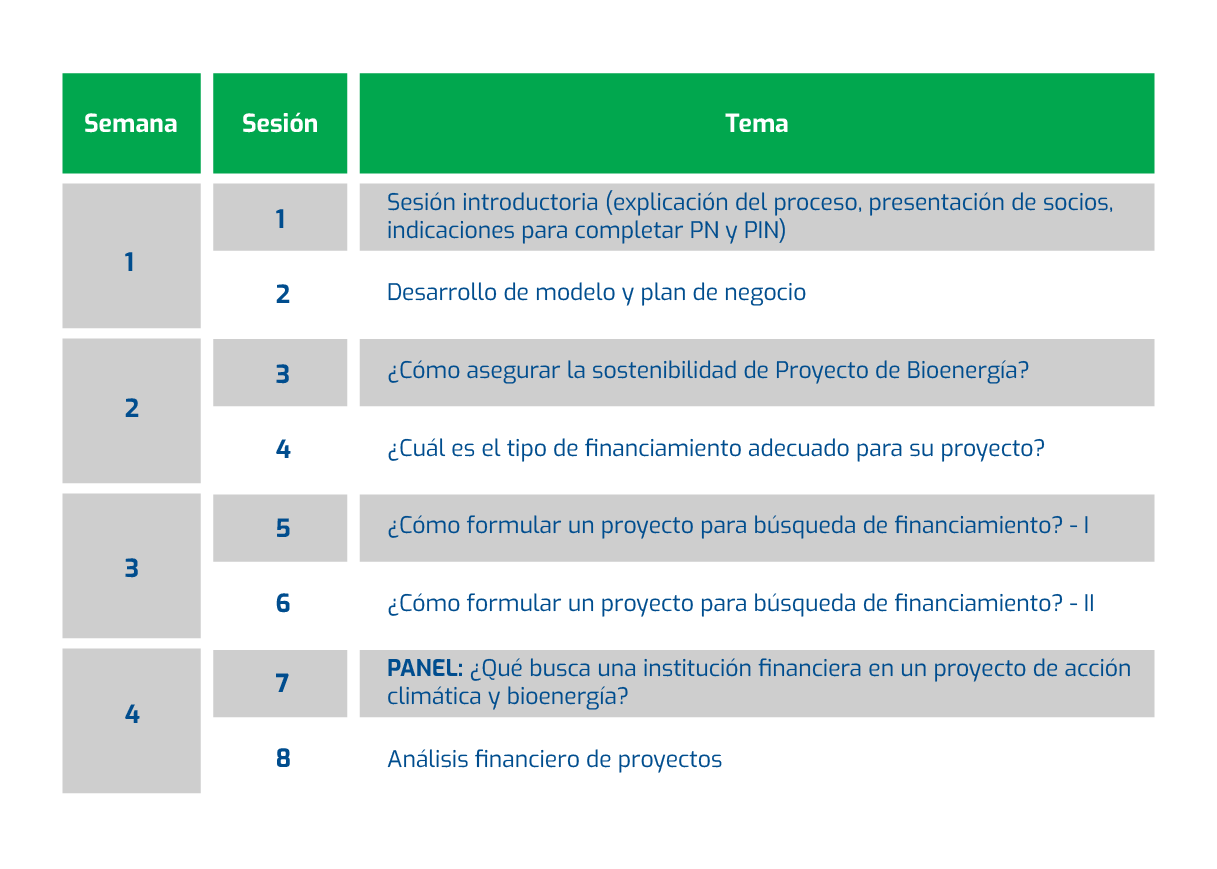
The BioE LAC 2023 Challenge is organized by the Bioenergy Community of Practice of the LEDS LAC Regional Platform.
The Bioenergy Community of Practice is a peer-to-peer learning network of professionals from governments, the private sector and non-governmental organizations, working together to advance bioenergy development in Latin America and the Caribbean. Launched in 2016 by the LEDS LAC Regional Platform Secretariats and the LEDS GP Energy Working Group, the Bioenergy Community of Practice brings together multiple LAC government leaders and key international experts to exchange best practices and provide tools and resources towards the design and implementation of bioenergy policies and programs.

In collaboration with:

The Private Finance Advisory Network is a global network of climate and clean energy finance experts, offering free business advice and investment facilitation to entrepreneurs developing climate and clean energy projects in emerging markets.

Develops and implements comprehensive emissions reduction projects and strategies that turn climate action into long-term business opportunities for companies, governments and organizations around the world. Since 2006, we have helped organizations large and small identify and support the emissions reductions their initiatives achieve, with meaningful climate action at the heart of everything we do.
With the support of:

CAF Development Bank of Latin America
We are a development bank committed to improving the quality of life of all Latin Americans and Caribbean people. Our actions promote sustainable development and regional integration. We aim to become the green and blue Bank, and the Bank of economic and social reactivation in the region.

Global Bioenergy Partnership (GBEP)
GBEP was founded in 2006 with the idea that bioenergy can make a significant contribution to energy access, energy security, climate change mitigation, food security and sustainable development. The last fifteen years have seen considerable growth for the organization, which now has more than 80 members and an increased number of activities in different countries.

The Inter-American Institute for Cooperation on Agriculture - IICA
The Inter-American Institute for Cooperation on Agriculture (IICA) is the specialized agricultural agency of the Inter-American System that supports the efforts of the Member States to achieve agricultural development and rural well-being by working closely and permanently with 34 Member States, whose needs it addresses in a timely manner.
INCAE Business School is a private, non-profit, multinational higher education organization dedicated to teaching and research in the field of business and economics since 1964. The Latin American Center for Competitiveness and Sustainable Development (CLACDS) is INCAE's main research center, and serves as a think tank for the region's governments, integration organizations, private sector and civil society. CLACDS also provides analytical and programmatic support to bilateral and multilateral cooperation organizations working in the region.
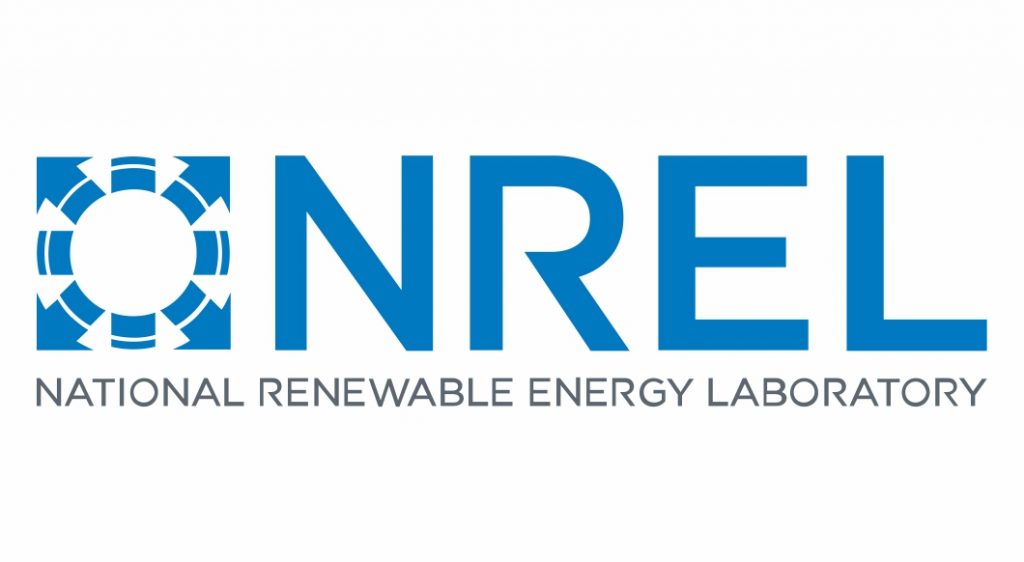
U.S. National Renewable Energy Laboratory (NREL)
NREL is a research and development center that advances the science and engineering of energy efficiency, sustainable transportation and renewable energy technologies, and provides the expertise needed to integrate and optimize energy systems.
LEDS LAC is a network of organizations and individuals working in the promotion, design and implementation of LEDS in Latin america and the Caribbean.